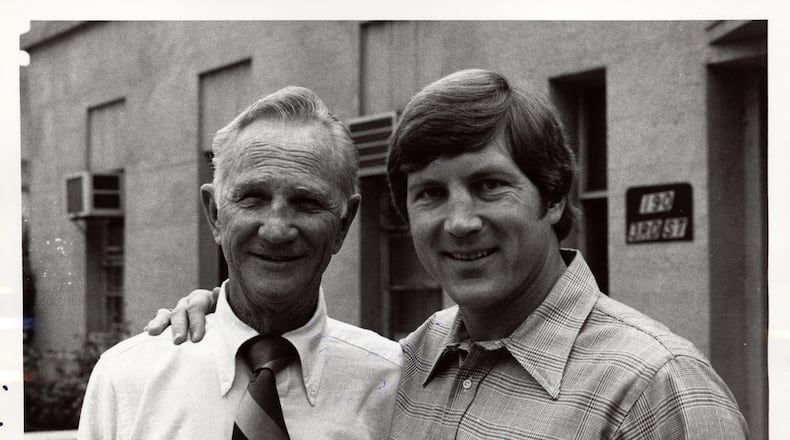Editor's Note: The following is an excerpt of Mark Bradley's column on the 1964 decision by Georgia Tech to leave the conference it had helped found 30 years earlier - the Southeastern Conference. The full column, available on myajc.com, depicts how much the other school from Athens and the city of Atlanta influenced the decision.
Friday marked the 50th anniversary of a day in Georgia Tech athletic annals that isn’t celebrated and only vaguely remembered. On Jan. 24, 1964, the Institute announced its intent to leave the Southeastern Conference. It’s a move that seems unthinkable today, when the SEC stands as the colossus of college football, and even then it was hard to fathom.
At the crux of Tech’s exit was the so-called 140 Rule. SEC schools – there were 12, Tulane included – were allowed 140 scholarships for football and men’s basketball; football programs were allowed to sign as many 45 recruits per season. Tech coach Bobby Dodd believed that other teams were overrecruiting, pushing aside underperforming players to clear scholarship space for newer ones.
Said Bill Curry, who played under Dodd and would later coach Georgia Tech: “That was an obsession with coach Dodd. I didn’t play very much my first two seasons. I was one of those he could have run off.”
Dodd wanted the SEC to allow fewer signees per recruiting class and had an ardent ally in Tech president Edwin Harrison. Tech almost got the 140 Rule changed at the 1963 SEC winter meetings, but Alabama president Frank Rose, breaking with the stated wishes of Tide coach and athletic director Bear Bryant, voted to keep it.
That summer, the Atlanta Constitution ran a story proclaiming that Georgia Tech was prepared to leave the SEC over the 140 Rule. The 1964 meetings convened at the downtown Atlanta Americana Motor Hotel with some in the SEC believing that Tech had delivered an ultimatum: Change the rule or we’re out.
The Jackets – a technical institute among mostly state universities – were seen as a snooty outlier in a conference they had, in 1932, helped found. Some suggested that Dodd was intrigued by the notion of becoming an independent. But Curry, who was a Tech junior when the Jackets left the SEC, said: “Coach Dodd met with us afterward and told us it was about that rule. It wasn’t just a moral thing. Coach Dodd believed he was being put at a competitive disadvantage (because others would oversign and Tech refused).”
About the Author
Keep Reading
The Latest
Featured




